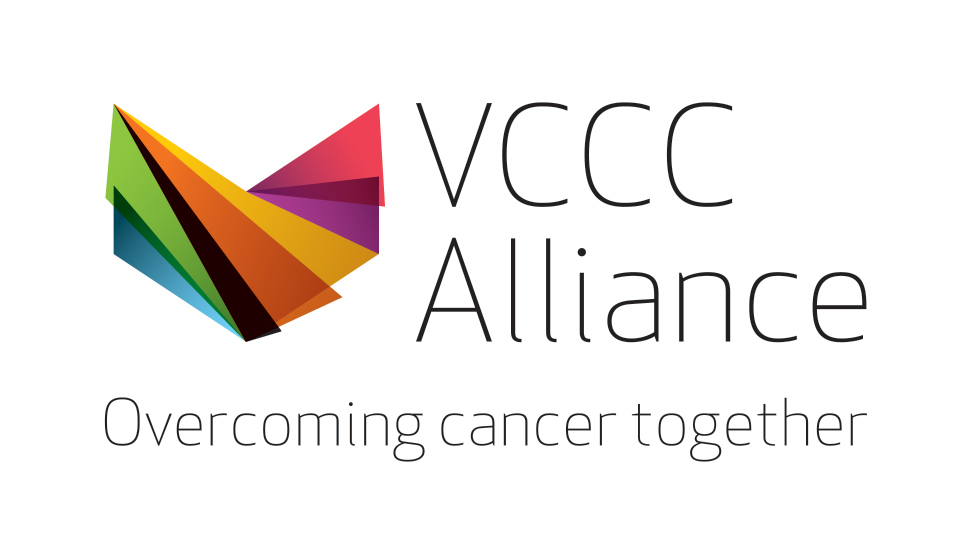VCCC Alliance Precision Oncology Forum
Integrating AI, trial finding, and multidisciplinary care to transform oncologic decision support
16 May 2025
The presentation explores how a comprehensive ecosystem design could lead to improvement with the aid of AI, collaborative trial finding and multidisciplinary expertise.
We are at the intersection of precision oncology and computational innovation, creating a critical opportunity to bridge the implementation gap: despite remarkable advances in genomic profiling and targeted therapeutics, oncologists and patients face significant challenges in maximising the benefit of molecular insights into actionable decisions efficiently and effectively.
Our presentation explores how a comprehensive ecosystem design could lead to improvement—through better oncologic decision support—with the aid of AI, collaborative trial finding and multidisciplinary expertise.
Drawing from extensive experience implementing AI-augmented decision support systems within Australia's Molecular Screening and Therapeutics (MoST) program, we demonstrate how symbolic reasoning can enhance precision in trial finding whilst preserving clinical interpretability to maintain transparency with evidence-based ranking. The open-source tool, Precision Oncology Treatment and Trials Recommender (POTTR), uses rule-based inference to navigate the complex landscape of biomarker-therapy associations.
The recent initiative ARTICANZ (Annotated Registry of Trials in Cancer) aims to further democratise trial knowledge through ontology-driven search capabilities. These open-source platforms highlight how collaborative innovation is critically needed to address the significant knowledge asymmetries that we face today in precision oncology.
Beyond technology, we examine how Precision Oncology Multidisciplinary Teams (MDTs) serve as the crucial human interface for AI integration, contextualising recommendations within the patient's clinical narrative. Building upon the increasing necessity of molecular tumour boards, this symbiotic relationship between precision medicine expertise and clinical practice requires a paradigm shift in how we approach genomically-guided cancer care in Australia, enhancing not only therapeutic selection but also the fundamental structures through which we disseminate, interpret and implement evidence at the bedside.
Key Topics:
- Open digital knowledge frameworks for democratising structured precision medicine knowledge and trial information (TOPOGRAPH, ARTICANZ)
- Architecture of explainable AI for biomarker-driven therapy selection (POTTR)
- Addressing structural barriers in implementing precision oncology into care
- Evolution from molecular tumour boards to comprehensive MDTs (UNSW Precision Medicine Initiative; Prince of Wales Hospital Precision Oncology MDT)
- Future directions for collaborative, technology-enabled precision oncology
This presentation aims to challenge conventional approaches to oncologic decision support while offering pragmatic insights for clinicians, informaticians and health services researchers committed to advancing the promise of precision medicine.
Chairs
Dr Huiling Xu
Senior Research Fellow, Peter MacCallum Cancer Centre
Dr Joep Vissers
Curation Scientist Team Leader, the University of Melbourne
Speakers
Dr Frank Lin MB ChB, PhD, FRACP, FAID
Clinical Informatician and Academic Medical Oncologist, Prince of Wales Hospital; Senior Research Fellow, SPHERE Cancer Academic Group, UNSW Sydney, Garvan Institute of Medical Research, and NHMRC Clinical Trial Centre, University of Sydney.
Dr Lin's expertise lies in genomic precision oncology, research in practical decision-making, and diagnostic support applications in cancer care. He is also co-investigator of several biomarker-directed clinical trials in drug development with the Australian MoST program and MoST pancreas subprogram. His research interests focus on AI in genomic decision-making, medical imaging analysis, digital learning health systems, and biomarker development through deep learning.
Dr Lin leads the development and maintenance of the TOPOGRAPH precision oncology knowledge base, ARTICANZ trials database, and has authored a decision support system for precision trial matching. He has contributed to several molecular tumour boards (MTBs) both past and present. He currently co-leads the precision oncology clinic and molecular multidisciplinary team (MDT) at Prince of Wales Hospital, Sydney, through a Rapid Applied Research Translation initiative grant awarded by the Medical Research Future Fund. He is a co-investigator on several grants and serves as the Deputy Editor of JCO Clinical Cancer Informatics (ASCO).
Content warning: The VCCC Alliance Precision Oncology Forum is aimed primarily at a clinical audience and features open discussion about real cases and patients. While these cases are de-identified, the imagery, content and discussion can be graphic.
Resource details

This course is brought to you by
